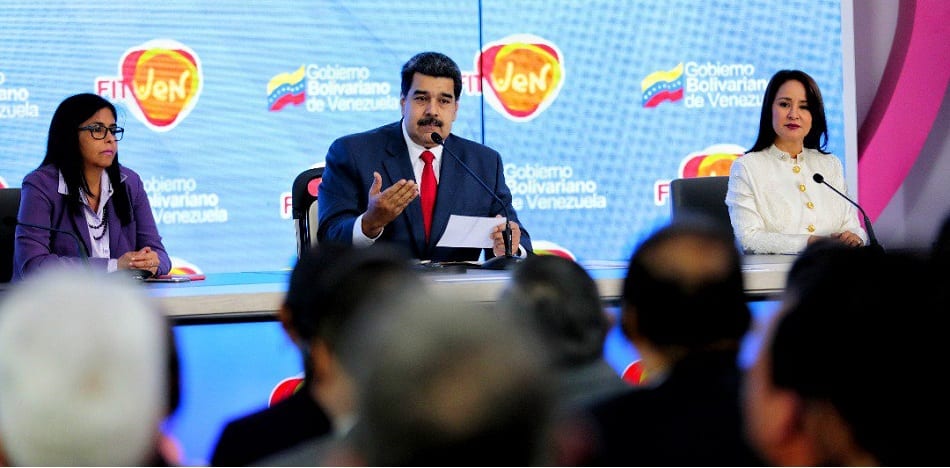Taking inspiration from Cuba, Nicolás Maduro has recently decided that tourism will now only be only for foreigners or for “well off” Venezuelans, since he announced that the regime will charge in foreign currencies and cryptocurrencies for tourist services in some “economic zones.”

In Cuba, only foreign citizens and Cubans with foreign currency can enjoy tourism, and in Venezuela the policy will be the same: Venezuelans will not be able to enjoy their own tourism destinations.
Maduro announced Monday that on the islands of Margarita and La Tortuga, as well as the Gran Roque archipelago and some of the beaches of Falcon state (the country’s major tourism destinations) that “all” payments for tourist services will be made “in international currency, with the proviso that they will also accept major cryptocurrencies.”
In Venezuela, the people endure exchange control whereby citizens can not freely access foreign currency, and where the minimum wage is less than USD $6. Now Venezuelans will not be able to enjoy the renowned Margarita Island, for example, unless they have foreign currency.
“The policy applies to all services that are provided, from the payment for airfare, hotels, yachts, food, and gifts,” said Maduro.
Thus, Maduro’s dictatorship isolates Venezuelans even more and discriminates against them by denying them the possibility of having access to tourism goods and services in their own country.
The same thing happens in Cuba, where the inhabitants of the island can only enjoy tourism if they have foreign currency and the permission of the state.
In Venezuela “there is no tourism”
Faced with this serious economic, political, and social crisis in Venezuela, foreign tourism has become almost non-existent, particularly in the wake of high levels of violence and insecurity that have overwhelmed the South American country.
The tourism sector is considerably impacted by the economic and social problems that Venezuela is enduring, which has resulted in a decrease in trips to the island of Margarita and other destinations in the country, and in the deterioration of hotel operability.
For the president of the Tourism Bureau of Margarita, Julio Arnaldes, the national market has been more affected in 2018 because the hotel occupancy rates have dropped between 40% and 60%.
#Venezuela Hoy Maduro anunció en cadena q es la hora del turismo nacional y el pais será una potencia turística mundial..bueno que comience por Margarita 90% de los locales d la 4 de mayo no existen @AsambleaVE @hramosallup @PoleoRafael @NegalMorales pic.twitter.com/Md9f4gXZxr
— José Trujillo Vera (@dipjosetrujillo) November 26, 2018
For his part, the vice president of the Venezuelan Association of Tourism Representatives and Wholesale Companies (Avemarep), Reinaldo Pulido, clarified that every time there are fewer seats and flights, transportation by road is increasingly precarious, and there are problems for hotels because they often lack public services such as electricity and water.
“Right now, annual tourism arrivals are under 125,000 people,” Pulido said in a recent radio interview.
The South American country faces a war economy characterized by a shortage of food and medicines. It also faces serious failures in public services and high levels of violence that make it in the most insecure country in the region, and the least attractive country for tourism.
Venezuela is dollarized only for those who can afford it
After the rampant devaluation of the bolivar and skyrocketing hyperinflation in Venezuela, its people now use the dollar for commercial transactions and savings, despite the iron-fisted exchange control established by the Maduro regime.
Venezuelans use the dollar for the purchase and sale of real estate and vehicles, but also for transactions involving electronic items, appliances, clothing, toys, and even second-hand footwear.
The crisis has obligated Venezuelans to prefer the use of the dollar. Although it is not a legal phenomenon, it is becoming quite common.
Now in Venezuela rents for commercial properties are charged in dollars, but also services and private medical consultations.
Not all Venezuelans have dollars, however, and salaries paid in bolivars fetch only small amounts of foreign currency.
Luis Oliveros, a Venezuelan economist, said through his Twitter account that paying for goods and services in dollars in Venezuela will “become increasingly normal” and expects that the country’s economy will be dollarized.
The economist explained that Venezuelans will now seek ways to receive more dollars, even by enlisting the help of their relatives abroad and the sending of remittances.
Oliveros added that everything indicates that by 2019 hyperinflation will continue, which means greater “devastation”, so he predicts that the prices of more goods and services will be dollarized.
“Is it healthy? Is it good? Do I like it? Better not talk about it? It doesn’t matter!!!! It’s what happens when the currency collapses,” he said.
Venezuela is going through the worst economic crisis in its history, with widespread shortages and hyperinflation, which the International Monetary Fund estimates will reach 2,500,000% this year.
Faced with this situation, Venezuelans seek to “protect” their finances by charging in foreign currency despite the risk of doing so in the midst of exchange control and the persecution by the state, which seeks to crack down on dollar usage by Venezuelan citizens.
Panampost.com













